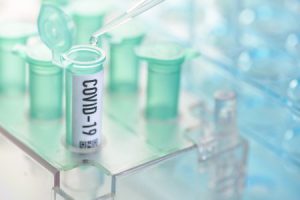
The rise of cashless payments has become crucial to our everyday lives – but now more than ever. Public health experts are stressing the need to shift towards a completely cashless society as a means of preventing the coronavirus outbreak from spreading further, as the World Health Organisation (WHO) warns that the virus can be transmitted via the handling of banknotes and coins.
The announcement arrives as South Korea and China begin burning and disinfecting currency, while other world-renown attractions including the Louvre in Paris halt all cash transactions.
Authorities have cautioned particularly against the risk of transmission via money handling prior to eating a meal. One notable microbiology professor said the employees touching cash in the catering or food-serving business had the potential of being “super spreaders” of the coronavirus.
“Clearly, as the COVID-19 situation evolves, things we take for granted will be re-examined,” Australian Medical Association president Tony Bartone told The Australian.
He pointed out the risk of the virus being spread through the handling of cash, and said that cashless methods are safer: “Cashless options would potentially reduce the extent of possible transmission.”
University of NSW microbiology professor Peter White reiterated the statement made by the AMA chief regarding the risk posed by cash payments. White noted that enveloped RNA viruses such as COVID-19, could remain transferrable on objects – including banknotes and coins – “from anywhere between six and 24 hours depending on the temperature and humidity.”
“The virus on the hands doesn’t last anywhere near as long as it does on cash. We’ve got an enzyme in our sweat that breaks the virus down. It definitely survives longer on inanimate objects like money,” Professor White added.
“If a person is infected, transactions involving cash will involve a potential fomite, or a contaminated object, passed from one person to another, with a secondary transfer if change is needed. Therefore, there are two potential transmission events.
“If I sneeze on my hand before using it to pick a $20 note from my wallet to give to a catering worker to pay for my burger, when that $20 is given as change to the next customer there’s a transmission risk. It’s absolutely crucial that catering employees, when dealing with customers and cash, sanitise their hands because they have the potential to be super spreaders.
“Cashless operations for them are safer.”
Professor White said that opting to pay cashless during the outbreak of the virus would be “much safer”, because “no one is touching anything is a good thing.”
“Contactless payment is much safer because you’re not introducing a fomite,” he said.
“If there’s no handling of cash, if you’re just holding your phone or card against the machine, that is much safer. There’s less chance of transmission because there’s no contact.”
